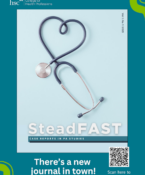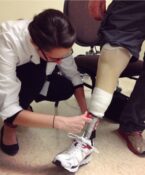Should I be concerned about coronavirus? Hear from our experts.
What is a Coronavirus?
Named after the crown-like projections on their surfaces, coronaviruses are a large family of viruses that are common among different animal species such as bats, cattle, camels, and cats. While it’s rare that animal coronaviruses infect people and spread, the first human coronavirus was first identified in the 1960s. Most coronaviruses are not dangerous, however, in recent years some types have become serious such as the SARS outbreak in 2003 and MERS outbreak in 2012.
In December 2019, officials from Wuhan, China first discovered the newest respiratory coronavirus, now called the “Coronavirus Disease 2019” or “COVID-19”.
How is it transmitted?
Often spread from person-to-person among close contact (around 6 feet), human coronaviruses are thought to be transmitted mainly by respiratory droplets produced when an infected person coughs or sneezes. This is similar to how influenza and other respiratory pathogens such as the common cold or flu spread. Exactly how this new coronavirus spreads among humans is still unknown.
What are the symptoms?
“These viruses are like colds in which you’ll have symptoms such as sore throat, stuffy nose, fever, headache and just a feeling of sickness,” said Dr. Mark Chassay, Senior Vice Provost, Chief Clinical and Medical Officer at UNTHSC. “Sometimes it’ll progress to bronchitis or pneumonia. You might get other symptoms such as diarrhea and vomiting.”
This new virus varies case-by-case, showing up as serious cases like lung lesions and pneumonia, to milder cases that may resemble the flu or a bad cold. The Centers for Disease Control and Prevention (CDC) says that the COVID-19 virus may take 2-14 days to notice symptoms after infection.
Individuals who have traveled in an area of China where COVID-19 has been reported or have been in close contact with someone who has traveled to those areas and are showing respiratory symptoms are being strongly urged to contact their healthcare provider right away.
These individuals may be considered “under investigation” or “under monitoring” by the U.S. Department of Health and Human Services (HHS) and the CDC. What’s the difference? UNTHSC Public Health expert Dr. Diana Cervantes explains in the video below.
How can I protect myself from getting it?
- Frequently wash your hands with soap and water for at least 20 seconds
- Cover your cough or sneeze
- Stay at home when you’re sick
- Avoid touching your eyes, nose and mouth
- Clean and disinfect all frequently touched objects and surfaces
- Avoid close contact with those who are sick
Is it safe to travel?
The U.S. Department of State has issued its highest-level travel advisory to “Do Not Travel”, advising Americans to avoid all nonessential travel to China due to the risk of the coronavirus outbreak.
Read the latest
To stay up-to-date or learn more about this developing situation, please visit:
- Texas Department of State Health Services
- Centers for Disease Control and Prevention
- World Health Organization
UNTHSC is not aware of students or employees who are currently at risk.






Social media